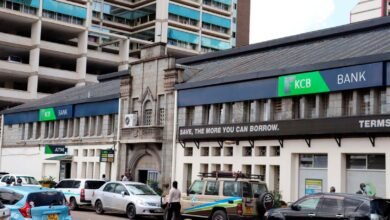
The Central Bank of Kenya (CBK) has announced changes on the Credit Information Sharing mechanism in a bid to allow every Kenyan access credit.
The regulator has tasked all the Credit Reference Bureaus (CRBs) to make changes on customers’ credit reports to enhance the robustness of credit scoring mechanism. The credit score mechanism is underpinned by the CRB Regulations, 2020.
The change includes a standard statement at the top of every credit report which according to CBK shall “indicate that a customer’s credit score should not be used as the sole reason by a lender to deny customer a loan.”
In new changes, the CBK said it’s also working with banks for a risk-based credit pricing approach where lenders will consider a credit score of a borrower in making a lending decision.
As of October this year, at least 22 of the 38 commercial banks had cleared their risk-based management models by the regulator.
This approach will enable appropriate access to affordable credit by borrowers, especially Micro, Small and Medium-sized Enterprises (MSMEs).
With Metropol CRB’s Credit Score (Metro Score), one is awarded marks between 200-900. Any marks below 400 mean your rating is low because you are a defaulter. Rating near 800-900 means you have a high rating. The score is used to assess a borrower’s creditworthiness.
CBK seeks to have a uniform approach to fees and commissions charged during loan processing to standardize the cost of obtaining credit for individual and business loans.
Risk-based credit pricing occurs when lenders offer different categories of borrowers, differential interest rates, and other loan terms based on their estimated risk portfolios.
This model of pricing gives borrowers’ opportunity they, otherwise, would not have had. Instead of being denied, they’re told, “you can borrow, but it’ll cost you.” If everybody knows how the system works, it seems fair enough.
CBK has rallied the public to honour payment obligations on loans to build a good credit history based on the repayment behaviour to obtain loans at a better interest rates.
“When borrowers experience challenges in repaying their loans, they should proactively engage their lenders.
They should also review periodically their credit reports to track their credit scores and verify the accuracy of the reports,” said the CBK.
CIS mechanism came into force in 2010 when it was established as a Self-Regulatory Organisation (SRO) to address the barriers between potential and risky borrowers.
It was refreshed in 2013 and 2020 to give a window for full-file information sharing at a time when only negative data on a borrower was being shared.
The Regulations placed mandatory requirements on the CBK’s licensed lending institutions to submit data to all bureaus.





